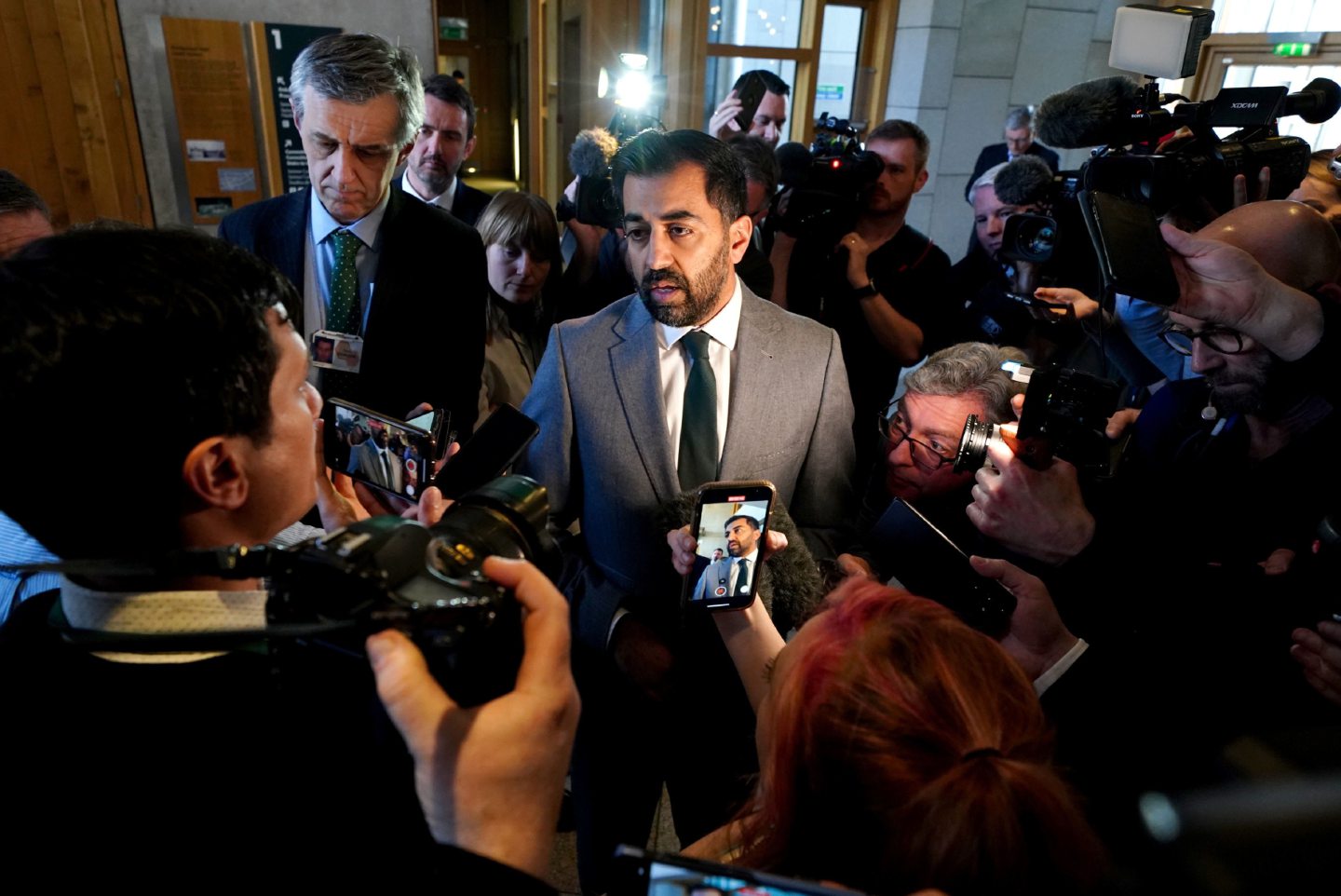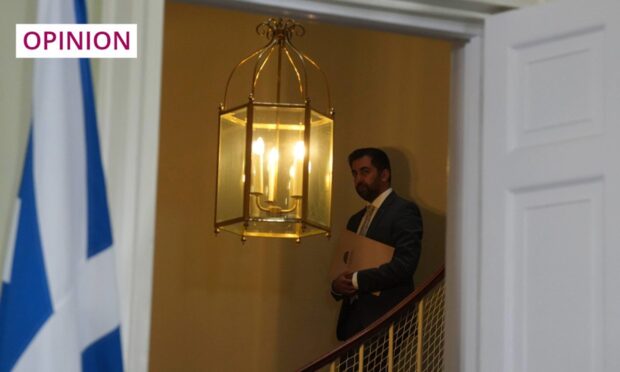Audacity is a necessary quality in a successful politician. The journey to power is fuelled by bluff, bluster and hyperbole.
Sure, solid principles are desirable in those who wish to lead, but the ability to adapt or discard firmly held positions is useful.
There are few more audacious politicians in Scotland than former First Minister Nicola Sturgeon. The ex-SNP leader built her career in a political movement which has never had any difficulty in changing direction when such detours are deemed expedient.
Take, for example, the matter of membership of the European Union. Back in 2014, Sturgeon and her mentor Alex Salmond campaigned in the independence referendum for a Yes vote that would have seen Scotland lose its EU membership. Yet, when the spivs who led the Leave campaign in the 2016 vote on membership of the European bloc won the day, departure from the EU became a moral outrage.
But that is not the former first minister’s sole legacy. Sturgeon has also played a leading role in creating political and societal division in Scotland.
Under Salmond’s and then Sturgeon’s leadership, the SNP’s attacks on opponents were brutal and entirely unreasonable.
Anyone who dared question the wisdom of the nationalists was “talking down Scotland”, Labour voters were nothing but “red Tories”, and all Tories were to be detested. According to Sturgeon, those who raised concerns about reform of the Gender Recognition Act were using “women’s rights as a sort of cloak of acceptability” and were “deeply misogynist, often homophobic, possibly… racist as well”.
Despite hypocrisy, Sturgeon’s message was the right one
While first minister, Sturgeon sneered at those who disagreed with her. Hardcore nationalists may have thought her a hero, but she treated the majority of Scots, who preferred the UK to independence, with absolute contempt. Taking their lead from her, SNP activists lowered the tone of debate.
You will struggle to find instances of members of other parties turning up outside SNP conferences to hurl abuse at attendees. Members of Sturgeon’s SNP, on the other hand, had no such compunction about picketing opponents’ events.
When she reckoned it suited her, Sturgeon sowed division with enthusiasm. Apparently, things have changed. Now Sturgeon wishes to be a great stateswoman, respectful of others, encouraging of good faith debate.
In her first speech in the Scottish parliament since stepping down as SNP leader, the former FM piously called for a new era of “civility and respect” in political debate. This, she said, would lead to a “creative tension” that could improve public policy and its outcomes.
I suppose it was to Sturgeon’s credit that she said she accepted her share of responsibility for the state of our political discourse. But, then, how could she have denied it when there exist endless hours of footage of her demonising opponents?
However, ignoring the obvious hypocrisy of Sturgeon’s desire for a better quality of politics, her message was the right one.
Focus on the bitter constitutional debate has meant other issues – from the NHS to education to criminal justice – have not had the attention they deserve and demand. It is also true to say that distrust (and, I’m afraid, disdain) between opposing MSPs has grown to destructive levels. There is far too little good-faith discussion at Holyrood, and far too much vitriol.
‘First activist’ isn’t a leader for all Scots
When Sturgeon succeeded Alex Salmond as first minister in 2014, she promised to be a leader for all Scots, regardless of how they had voted in the referendum. This honourable pledge lasted hours. Soon, Sturgeon was using her platform to further divide a country already split by an unpleasant and lengthy referendum campaign.
Just four months ago, Sturgeon’s successor, Humza Yousaf, echoed that promise to represent all Scots, no matter their view of independence. Again, that was a promise that was soon to evaporate.
Instead, Yousaf has devoted his attention to the business of dividing us. The self-declared “first activist” appears more interested in shoring up support for his party than he is in attending to the priorities of the majority.
Despite polls showing that even many of the minority of Scots who support independence do not currently think a second referendum a priority, Yousaf seems determined to concentrate on this divisive issue rather than opening his mind to the real discussion of wider issues.
It’s hard not to admire the brass neck of Nicola Sturgeon as she calls for a better quality of debate, but the bleak fact is that she helped drag our discourse into the gutter and her successor seems happy for it to remain there.
Euan McColm is a regular columnist for various Scottish newspapers












